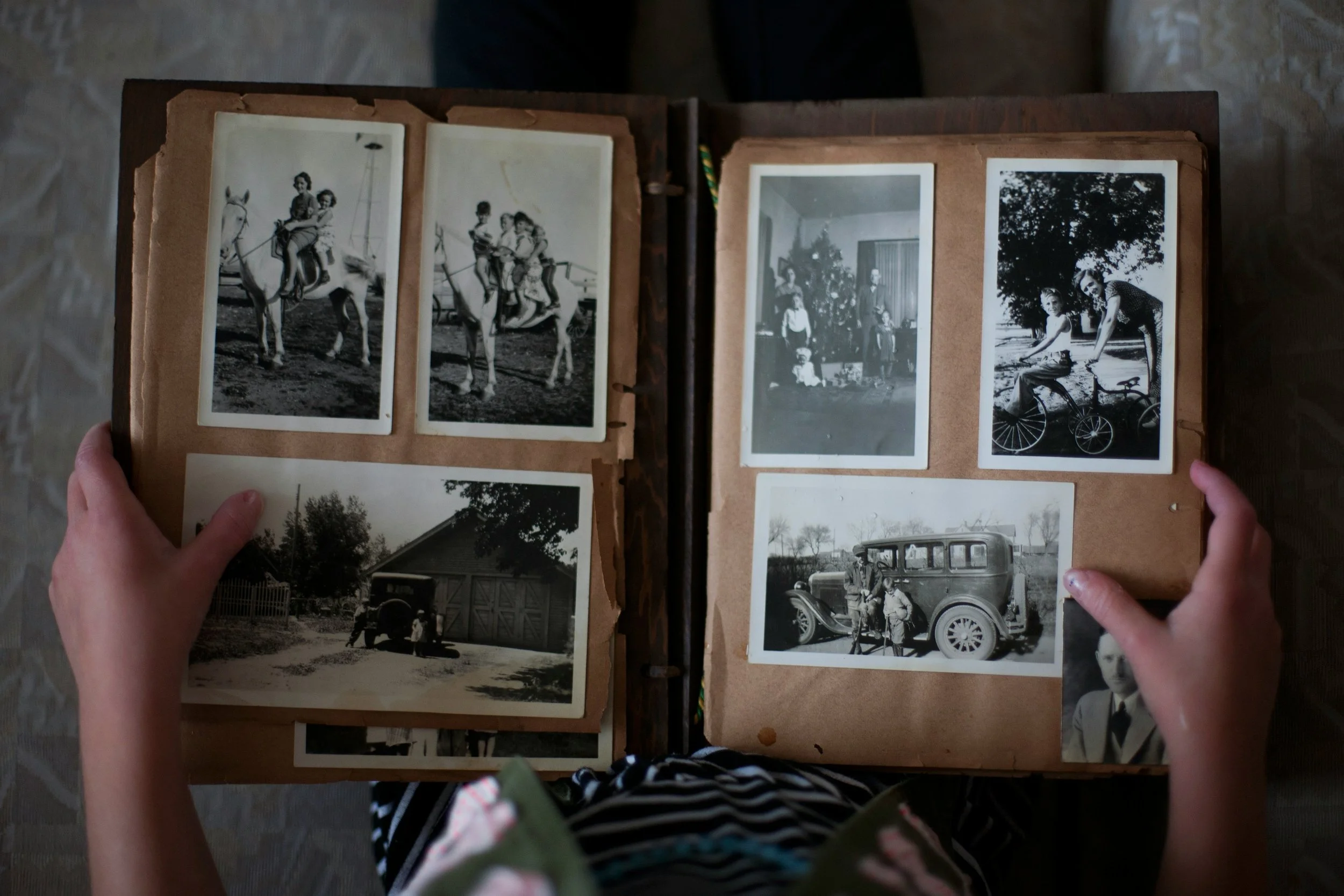
An important note before I go any further – reflecting on our childhood and families of origin may be very challenging for some of you, as sadly, many experience difficult treatment at the hands of those who are supposed to care for us. There is no pressure to read further or to do this prompt if it feels overwhelming. Go at your own pace and know that you are worthy of love just as you are <3
WHY THIS EXERCISE
This prompt is about examining how we were raised—what we’ve inherited from our parents or caregivers—and what we choose to carry forward (or not) in our own lives.
This topic is inspired by my work with several clients who came to talk about their children. They’d say things like, “My child needs help with their anger,” or “I want to help them feel more confident.” But when we explored deeper, the same struggles often showed up in the parent too – and if the parent dealt with their own challenge, the child often improved.
Children are copy/paste machines: that’s how we learn to talk, walk and behave in society: observing the people around us, and copying what we see. This means that we inherit so much from our families of origins – beliefs, habits, vocabulary, aspirations... Some of it we are aware of, but a lot of it is unconscious. Spending some time to shine a light on our inheritance is a first step towards carving our own destiny, determining what we want to keep, and what is best left behind.
What we model—often without realizing—can have more impact than what we say, so it’s crucial as a current/future parents to be self-aware of our own behaviour. But even if you don’t have (or want) kids, reflecting on your upbringing helps you understand yourself, your habits, and your relationships.
EXERCISE FLOW
This reflection has five key steps, each designed to help you explore what you’ve inherited and what you want to carry forward:
1. Appreciate the Positive
Identify the values and habits from your upbringing that you’re grateful for.
2. Acknowledge the Difficult
Reflect on what you’d prefer to do differently, without blame.
3. Notice What You’re Living
Explore which patterns you’re repeating or forgetting in your life now.
4. Consider Future Parenting
(Optional) Think about what you'd keep or change if you raise children.
5. Understand Their Story
Reflect on what shaped your parents and the progress they may have made.
As always, take what resonates and leave the rest.
DETAILED PROMPTS
1. What Did You Appreciate Growing Up?
Start with the good.
What in your childhood and family of origin are you thankful for?
Cast the net wide: it can be values, beliefs, life lessons, habits, hobbies, shared activities, memories, rituals, ways of showing love, conversations, and so much more
These don’t have to be big things. Often, it’s the small moments that stay with us.
Optional action step once you are done: If you feel comfortable, share your list with your parents (or someone who raised you) about the things you appreciated. Many of us never get around to saying thank you in a specific way—and it can mean a lot.
2. What Would You Do Differently?
Now, gently reflect on the less helpful parts.
What elements from your childhood would you not want to pass on? Again, cast the net wide: values, comments, life lessons, beliefs, reactions, activities, conversations, etc.
If you’re not sure, think about interacting with your family/caregivers today. What feels difficult or painful?
You can also ask: What would I not want my future child to experience, that I experienced?
This part can feel uncomfortable —like a betrayal. But it’s not. As I tell my clients: your parents likely did what they could, based on what they knew and the burdens they carried from their own upbringing. Most try to do better than the generation before.
You can then take the positives that they gave you to try to tackle the more difficult inheritance. It's not about blaming, but about choosing consciously what you want to keep—and what you'd like to change.
3. What Are You Repeating Now?
Look at both lists—what you liked and what you didn’t.
Which elements of both lists do you incorporate in your current life, whether consciously or unconsciously? You can even put a little symbol next to each item to ease the process.
Are there positive things you’d like to integrate further in your adult life?
(For example: family rituals, values, etc)Are you unintentionally repeating patterns you didn’t like growing up?
Where could you shift, even slightly?
4. Optional: If You Have Children Or Might Want Kids One Day
If raising children is something you’re doing or you’re considering, reflect on this:
What do you want to pass down?
What would you want to do differently?
How could you begin embodying that already—whether with kids, friends, or yourself?
5. One Last Thought
Sometimes, it’s also helpful to ask:
What made my parents the way they were?
Understanding their background doesn’t excuse everything, but it can help you soften any harshness. Just like you, they learned from the generation before—and likely tried, in their own way, to do better.
And now, you get to choose what comes next.